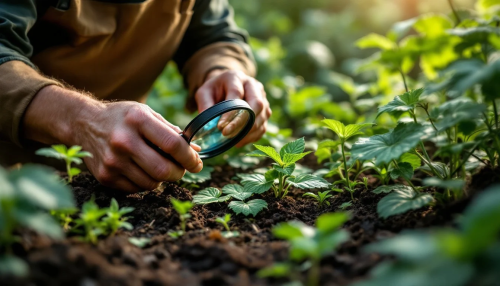In today’s fast-paced world, stress has become a constant challenge. Finding natural, effective ways to manage stress is crucial for maintaining a balanced and healthy life. One such powerful yet often overlooked stress reliever is gardening. Whether you have a sprawling backyard or just a few pots on a balcony, spending time tending to plants can significantly enhance your mental well-being. Here’s how gardening can help reduce stress and promote mental wellness.
Connection with Nature
Being in nature has been scientifically proven to lower stress levels, reduce anxiety, and improve overall mood. Gardening allows you to step outside, breathe fresh air, and soak in natural sunlight, which helps boost serotonin—the hormone responsible for happiness. The rhythmic act of planting, watering, and tending to plants also promotes relaxation and mindfulness.
A Natural Form of Therapy
Horticultural therapy has been used for centuries to help people manage anxiety, depression, and even PTSD. The simple act of caring for plants provides a sense of purpose and accomplishment, which is especially beneficial for those struggling with mental health issues. Watching a plant grow from a seed to a thriving bloom can be incredibly rewarding and uplifting.
A Creative Outlet
Gardening provides an opportunity for creativity, allowing individuals to design their own green spaces with a personal touch. Choosing plants, arranging flowers, and experimenting with different gardening techniques can be a fulfilling and engaging experience. This creative process not only provides a break from daily stressors but also fosters a sense of joy and inspiration.
Physical Activity and Endorphin Boost
Engaging in physical activities like digging, planting, and weeding releases endorphins, the body's natural stress relievers. Gardening is a low-impact exercise that keeps you moving and improves flexibility, strength, and stamina, all of which contribute to overall well-being and reduced stress levels.
A Sense of Achievement and Control
In a world where many things feel uncertain, gardening provides a sense of control and achievement. Watching plants grow and thrive due to your care instills a sense of accomplishment, boosting self-esteem and confidence. This feeling of success can help counteract feelings of helplessness and stress.
Social Connection and Community
Gardening can be a solo activity, but it also offers opportunities for social connection. Joining a community garden, sharing gardening tips with neighbors, or even just gifting homegrown herbs to a friend can strengthen relationships and create a support system, which is essential for mental health.
Conclusion
Gardening is more than just a hobby; it’s a powerful tool for improving mental health and reducing stress. By connecting with nature, expressing creativity, engaging in physical activity, and experiencing the joy of nurturing life, you can cultivate a happier, healthier mind. So, grab a trowel, get your hands in the dirt, and let gardening work its magic on your well-being!

